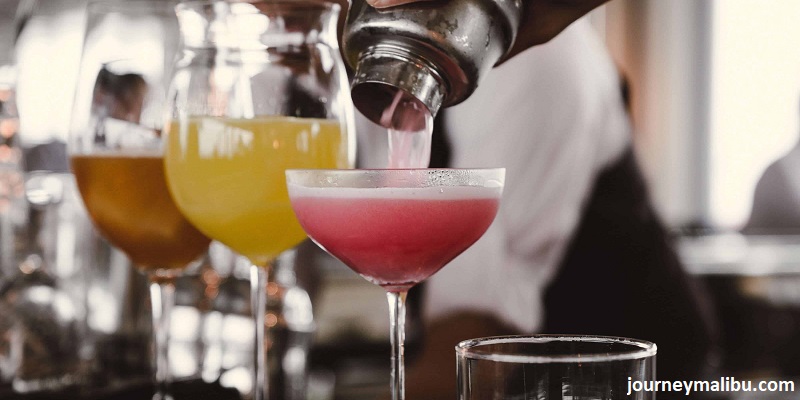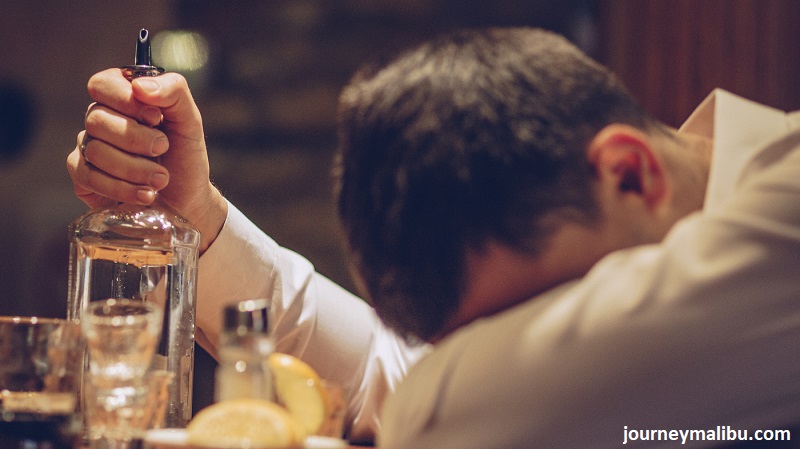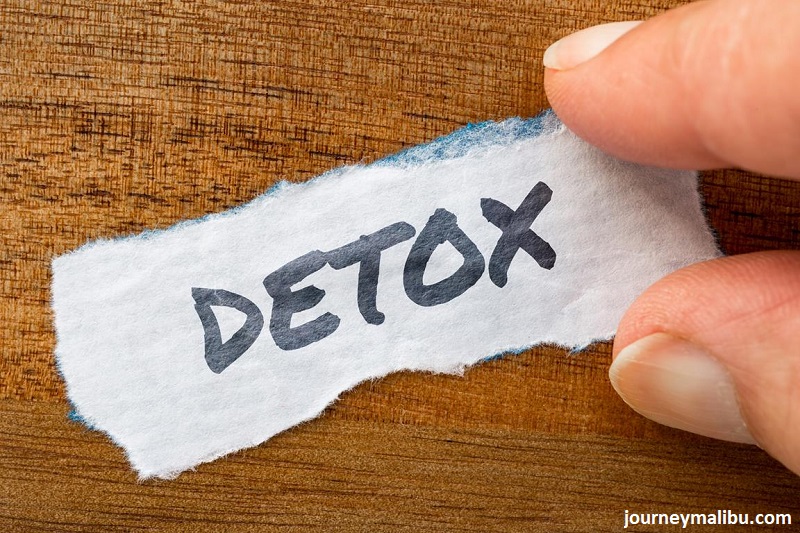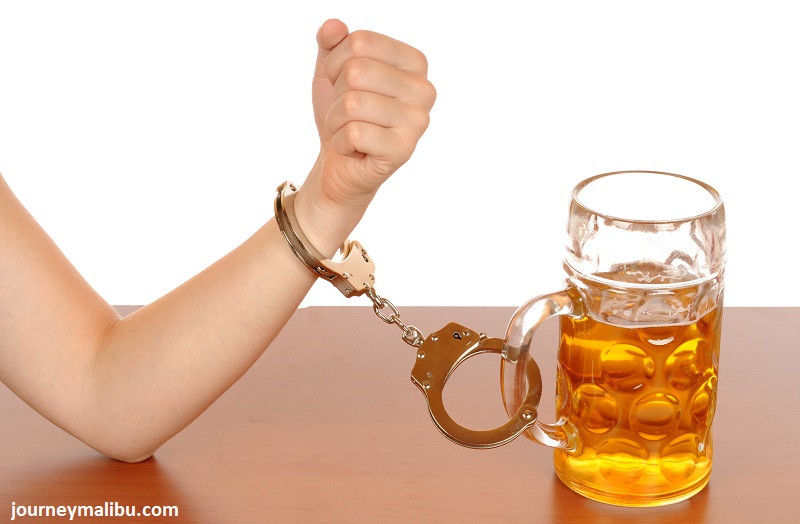Alcohol Addiction Treatment in Journey Malibu
So, alcohol has found its way inside your body or mind or both? Look at the facts and numbers based on the situation of alcohol consumption in the United States in just five years (2006-2010).
- 88,000 deaths
- Loss of 2.5 million years of potential life
- Death of 1 in 10 grown-up/working adults aged between 20 and 64 years
- Shortened life expectancy
- $249 billion spent on alcohol consumption($2.05 per drink)
The numbers should rise by many times over when we want to put this into a global perspective.Even more shocking to know, people just don’t stop as more are joining each day.So, the need for alcohol addiction treatment is REAL, and this article shares just what you want to know about the treatment procedures and the ways to get rid of this life-threatening habit.
You need to understand a lot about yourself in terms of your current alcoholic situation. Only then, you can expect something effective. Maybe, you’re going to ask why you should even be reading the ABC of alcoholism. Reasons are good! Keep reading…
Basics of Alcoholism
Before jumping into the treatment and medication, you should get yourself conversant with the drinking patterns,signs, and stages that tell you’re an alcoholic and need attention. It won’t take long…promise!!!

Are You Really Taking a Drink or Less?
You need to know what a drink actually is.
- Regular Beer: 12 Ounces/355 ml (~5% Alcohol)
- Malt Liquor: 8-9 Ounces/237-266 ml (~7% Alcohol)
- Unfortified Wine: 5 Ounces/148 ml (~12% Alcohol)
- Fortified Wine (Port, Sherry, etc.): 3-4 Ounces/ 88-112 ml (~16%-18% Alcohol)
- 80-Proof Distilled Spirits (Brandy,Cognac, etc.): 1.5 Ounces/44 ml (~40% Alcohol)
How to Know If You Are Drinking Too Much?
Maybe, you’ve heard about moderate, binge,and heavy drinking. Let’s know what these patterns are.
Moderate Drinking
- The most familiar pattern of drinking
- Men: 2 drinks a day
- Women: 1 drink a day
Binge Drinking
- The most common form of drinking alcohol in excess
- Men: 5 or more drinks on one occasion
- Women: 4 or more drinks onone occasion
Heavy Drinking
- A common form noticed in many drinkers
- Men: 15 or more drinks a week
- Women: 8 or more drinks a week
Alcoholic Already or Going to Be One Soon?
Most people drink and can’t tell for sure if they are not among the addicts.

Now, I’ll be giving you a list of instances that may or may not occur to you. But, by the end of this section, you can easily find out about your habit.
- Having more drinksbecomes a regular choice.
- You try to stop or cut back and sometimes put serious efforts but nothing happens
- You can’t tell how long you drink for, stay sick, and have had hangovers.
- Alcohol is just fine to you.
- You hang out with friends and invite them to drinks. Even, you don’t mind drinking alone when no one else is going with you.
- Telling lies about the habit doesn’t hurt you.
- Problems may occur at work orcollege/school, or even in family, and your habit is the only big reason.
- Relationships are being hurt badly, but you can’t seem to stop.
- Loss of control and an angry state of mind are frequent.
- No other works get as high in importance as alcohol.
- Health issues and mental complications can’t stop your drinking behaviors. Rather, you get more and more into it.
- The amount of intake keeps increasing to satisfy your alcoholic brain and body.
- Different withdrawal symptoms begin to visit you as the habit is gone for a day or two.
Now what? Did the above events ring a bell?
- 2-3 of these symptoms indicate that you are just a mild alcoholic.
- 4-5 of them indicate that you’ve just promoted yourself to be someone with a moderate disorder.
- More than 6 of these symptoms indicate that your addiction is severe.
Symptoms You Should Remember
Look at the list of physical symptoms that you may experience due to alcoholism.

- Repeated memory blackouts
- Serious mood swings
- Anxiety and depression with occasional panic attacks
- Erectile dysfunction
- Insomnia and problems sleeping
- Headaches with variations
- Gastrointestinal problems likeabdominal pain, upset stomach, bloating, diarrhea, nausea, vomiting (blood and food), etc.
- Itching and irritability
- Falls and dizziness with poor balance
- Lack of focus and concentration
- Chronic fatigue
Stages of Alcoholism
Alcoholics experience their addiction to the habit throughout seven stages which involve different symptoms and thus treatments.
Abstinence
Surprisingly, addiction may starteven before one takesthe first drink. Having genetic predisposition and attitudes similar to those of addicts can be responsible for abstinence.
Initial Use
Whatever you call it, an experimental or occasional use (a few times a year), it can’t be identified as a big deal. It’s barely a stage of addiction. However, cautions are advisable sinceyou might be under the alcoholic influence or having a hangover.
High Risk Use
This stage is marked withmore frequent instances of drinking followed bypoor choices both personal and socialunder the influence. Be aware if it keeps occurring to you. You’ve just entered the world of addicts.
Problematic Use
When someone who is drinking experiences the ill consequences (both physical and social), the little habit becomes a problem that may lead to serious problems like STDs (sexually transmitted diseases) and liver issues. Frequent DUI charges present addicts the noticeable perspectives of alcoholism.
Early Dependency
The most obvious outcomes that characterize this stage include absence from works, quarrels with the family over trifling matters, hostility springing from ignoble affairs. As soon as someone starts showing all these, an alcohol rehab should be the right place because early arrangements often bring good results.
Middle Stage
Irreversible negative incidents begin to happen as an addict enters his/her middle stage of dependency. Frequency of absence, quarrels, and abuses increases and often result in a loss of job, fights with intimates, end of both short-term and long-term relationships and other unwanted situations.
Crisis Stage
Serious diseases and symptoms begin to take their tolls on the bodyand the person who has reached this stage can barely live without drinking. Even worse, the addict starts making a fool of others believing that they can’t really find out about his/her addiction but in vain. Death is imminent if a rehab facility isn’t contacted soon enough at this stage.
Stages of Alcohol Addiction Treatment
Due to the severity of one’s addiction, physical condition, financial status, and other social factors, treatments may vary with the basics three stages being the same for most. Let’s understand what each of them includes.
Detoxification
The recovery process starts with detoxification.It marks the cessation of the habit. The process involves abrupt actions carried outby substitution or variants of cross-tolerant medications that may leave effects similar to those of alcohol with the only goal to prevent the habit.
Itsprimary goal is to eliminate alcohol and other substances from the body. The first two days after the last drink are very crucial because severe withdrawal symptoms usually start surfacing during this period. Some minor symptoms may also surface.
Rehabilitation
Now that the time for withdrawal starts, preparations for rehabilitation are in order. Different treatment procedures and therapies are conducted to help patientshandletheir drinking urges and associated triggers.
There’re both inpatient and outpatient facilities for rehabilitation.Some coping skills that one can learn at this stage are very helpful in real-life cases as one leaves the rehab facility.
Maintenance
This stage may be the ultimate one, but it only marks the possibility that you’re pretty much reluctant to alcohol intakes. By this time, it becomes easy for one to get used to the daily life without depending on alcohol in any form.
Some may join support groups to receive encouragement and ensure engagement with other recovering people. Leaders and speakers of those groups may also play key roles in helping the attendee to bring positive changes to the lifestyle and stay on sobriety for the days ahead.
Options for Alcohol Addiction Treatment
Alcoholism which is a malady are treated following a lot of undertakings which are sometimes psychological and spiritual while at times, they’re completely clinical/medical approaches.
Each of the following options is intended for any of the above three stages. It means treatments of alcohol don’t leave you several choices.
Rather, it’s a holistic approach that incorporates both core activities like detoxification and rehabilitation and other supplemental parts like counseling, faith-based techniques. Here’re explanations for each method.
Detox Treatment
Despite being popular and safe, detox treatment may seem a scary way to get rid of alcohol and harmful substances in the body. A detox program includes the required medical support and supervision offered by certified staff and psychiatric professionals with the goal to ensure comfortable and safe withdrawal with the preparation to help patients transition into a recovery program.

A standard detoxification plan incorporates 3 key components, such as evaluation, stabilization, and transition.
- Evaluation involves an assessment of the severity of addiction and condition of the health and mind for preparing an individualized plan.
- Stabilization includes monitoring activities and supports during the withdrawal process and the identification of potential health complications and an arrangement for proper intervention.
- Transitionfollows the stabilization process. It helps the patient to enter the recovery program to enable him/her to deal with relapse symptoms and maintain consistent sobriety.
Once the patient starts experiencing withdrawal, the professionals conducting the procedure evaluate the symptoms based on the severity (stages) of the withdrawal process. There’re three stages to evaluate.
- Stage 1: The patient shows mild symptoms of withdrawal, such as anxiety, headaches, insomnia, and tremors.
- Stage 2: Chances are that the patient experience mild and some moderate symptoms, such as confusion, fever, heavy sweating, rapid breathing, and pulse.
- Stage 3: It’s almost usual that a patient experiences all moderate and some severe symptoms, such as disorientation, impaired attention, seizures, and hallucinations (both visual and auditory).
- Another serious symptom is delirium tremens that starts within a week after the last drink. Rare yet life-threatening, it occurs in less than 5% of alcoholics.
There’s a specific timeline involved in the detox process.
- Initial Hours (First 6 to 12): Mild symptoms including irritability and nausea with the possibility to deteriorate over time
- Day 1: Increased severity with additional symptoms like hand tremors, seizures and disorientation.
- Day 2: Painful symptoms to continue with others like panic attacks and hallucinations
- Days 3 to 7: Fluctuations in the severity of symptoms with the surfacing of serious threats like delirium tremens
- After the First Week: Abatement of most withdrawal symptoms with a strong chance for a few to persist for the next few weeks
- The Following Weeks/Months: Chances for PAWS or post-acute withdrawal syndromes that may include anxiety, delayed reflexes, low energy, and trouble sleeping
Available Detox Programs
Three detox options are popular, such as hospital facilities, inpatient and outpatient treatment plans. You need an in-depth evaluation of your withdrawal before choosing any of these options.
Hospital Facilities
A well-equipped detox unit is available in many hospitals where patient receive medical supports from professionals.Some people opt for these hospital services after undergoingemergencies, such as seizures (prolonged and severe) and alcohol poisoning.
Inpatient Program
Patients see themselves being confined to residential detox facilities and 24-hour observation and care throughout theprocess. Complications like seizures or agitation may appear and thus be minimized using benzodiazepines.
Outpatient Program
Only the patients that have undergone rigorous evaluation and received approval of minimal risk of withdrawal complications can choose this option. They can stay wherever they find safe and suitable but have to pay scheduled visits to the treatment facility or doctor’s chamber for regular monitoring and treatment.
Alcohol Medications
Medications have their places when it comes to treatments of alcoholism.

Not all are equally reliable and potent to help you along the painful way of recovery! Below is the discussion of the most popular drugs/medicines used these days.
Acamprosate (Campral®)
This drug affects Gamma-Aminobutyric Acidand glutamate neurotransmitter systems and help the brain of the addicted to function without alcohol. Claims are there that alcohol cravings or withdrawal symptoms may be treated but without enough supportive evidences.
Adrenergic Medications (Precedex and Catapres)
Belonging to the Alpha-2 Agonist class, these popular adrenergic medications may relieve minor alcohol withdrawal symptoms like high blood pressure, elevated pulse, and arguably a few others. These drugs are usually prescribed with benzodiazepines.
Benzodiazepines/Benzos
Benzodiazepines, the so-called ‘gold standard’medications, act on the brain’s GABA receptors and help with moderate alcohol withdrawal symptoms by reducingirritability and anxiety during a detox process. Some severe symptoms potentially reduced by these substances may include delirium tremens, hallucinations, and seizures. Popular options are Ativan, Klonopin, Librium, Valium, and Xanax.
Disulfiram (Antabuse®)
These drugs inhibit an intermediate level of alcohol metabolismleaving an accumulation of acetaldehyde withlikelihoods of sweating, nausea, and flushing. The patient may experience dermatitis, metallic after-taste, and transient mild drowsiness. In addition, some experience tachycardia upon drinking alcohol.
Nalmefene
More active than Naltrexone,Nalmefene, an opioid antagonist, is known for helping withabstaining from alcohol intakes, especially if it’s taken moments before drinking.
Naltrexone (Depade®, ReVia®, Vivitrol®)
Naltrexone works differently to achieve the same purpose as that of Acamprosate. It reduces alcohol cravings by blocking opioid receptors which are responsible for pleasurable responses. So, the euphoric feelings become absent, and people find few reasons to drink alcohol.
Baclofen, Topiramate, and Other Anticonvulsants
Being an anticonvulsant, Baclofen helps reduce muscle spasms and alcohol cravings (arguably). Another popular drug belonging to this group is Topiramate that may deliver nearly the same result as naltrexone (making the drinking void of pleasures). Other anticonvulsants are also preferred by professionals who often prescribe these medications for epilepsy have other fellows suggesting their use in alcohol addiction treatments.
Psilocybin
Paired with motivational therapy, Psilocybin may be an excellent medication to help people stay away from drinking. Some of psychedelic or hallucinogenic drugs like this one may bring the same effect but with minimal risks.
Selective Serotonin Reuptake Inhibitors (SSRIs) and Antidepressants
SSRIs like Citalopram, Fluoxetine, Imipramine, and Ritanserin and some other antidepressants are in use for treatments. However, it’s wise to consult a certified professional before actually taking these.
Inpatient Rehab
Though inpatient rehab is a common way to go for many alcoholics, beneficiaries are those with years of struggling experience in heavy drinking.

You check into the preferred facility and stay there as long as required. It involves everything on a schedule, from the breakfast to the sleep at night having access to counseling, medical treatment and other specialized services round the clock.
Who should opt in for a program like this?
- It seems a dependable choice for those who don’t need to be involved in familial and professional duties for a certain period of time.
- People at their sixties who struggle during their detox phase and those facing painful withdrawal issues should choose an inpatient facility.
- Individuals with co-occurring psychological conditions alongside alcoholism may want personalized treatment schedules which are available in inpatient rehabs.
- People with the habit of getting drunk while being high on substances should look for this type of treatment.
- Those with heart issues, breathing complications, and liver problems should pick this treatment method because chances are thick that parts of the recovery treatment may interfere with their medical conditions.
Available Rehab Programs
There’re two choices, such as inpatient residential arrangement and partial hospitalization. As you choose either of the two types, keep these three factors in mind:
- The severity and stage of alcoholism
- Financial situations
- Overall health condition
Inpatient Residential Facility
- Known as the most comprehensive and intensive method of treatment
- Typical Programs: 30-Day, 60-Day, 90-Day
- Detox during the first week and then a daily schedule of recovery therapies for long-lasting sobriety
Partial Hospitalization
- Known as something in between the inpatient and outpatient facilities
- Ideal for those who live nearby the facility
- Complete hospital facilities with the chance to be at home regularly
- Ideal duration everyday: 6-8 hours
- Monitoring available for symptoms of withdrawal, relapse, and other physical complications
Questions to Ask While Choosing an Inpatient Rehab
You need to look into the reputation of a rehab center to know if it’s good enough. You may also ask for testimonials from your acquaintances. The following questions may also help you a lot.
- Is the specific program accredited and licensed?
- What’s the duration?
- Which expectations are going to be met?
- Who are the professionals and specialists? Are they available for 24/7 services?
- Which therapies and activities are available?
- How do the outcomes of the program work for a patient’s health and mental conditions within 1-10 years after completing the program?
- Are specialists available for helping with ongoing maintenance of sobriety even after the completion of the rehab program?
- What are the eligible financing options for the program?
- How can a patient maintain contact with families and relatives during the treatment?
If the answers to these questions make you happy, you can proceed with peace of mind. Otherwise, you want to rethink and do some more search.
Outpatient Rehab
Some people can’t just skip their typical daily routines to get cured of alcoholism. If you’re one of them wishing to maintain a work-life balance, this type should be good.

A few quick facts will be helpful for you to know how.
- Required actions: Daily visits (first few weeks/months) with a reduction of the number of visits after some improvements
- Available services: Medication-assisted detox, therapies, support groups, support for dealing with potential triggers, treatment facilities for the patient’s body and mind (as in more intensive plans), etc.
- Ideal for: People with dangerous yet moderate (not too severe) drinking behaviors but not for long-term drinkers
- Benefits: Work-life balance, cost-effective plans, chance to be home and spend time with the family every night, counseling sessions with dear ones, good transition between the real life and treatment
- Limitations: Likelihood of vulnerable withdrawal attitude and the reluctance to the treatment due to the opportunities for a regular association with the drinking partners
Available Outpatient Rehab Programs
The entire concept of outpatient treatment is based on the following three types.
Day Treatment
- The most intensive and disciplined of all outpatient plans
- Visits Required: 5-7 days a week (daytime)
- Available Scope: Full-day and half-day programs
- Duration: From a few weeks to months
- Included Facilities: medication detox, therapies, support groups, counseling services, etc.
Intensive Outpatient Programs
- More flexible than day programs
- Visits Required: Day or evening
- Ideal for: People with many schedules to meet and a stable home setup
- Frequent visits required at the beginning and fewer number of meetings with success in fulfilling recovery goals
- Guidance for alcohol relapse prevention included
Care Groups
- The final stage of the treatment
- Available in the majority of the important cities
- Duration and schedule: 1-2 hour(s) a day, once/twice a week
- Goals: Advice to maintain sobriety, friendly talks with them about their challenges and accomplishments, etc.
Questions to Ask While Choosing an Outpatient Rehab
- What are the available treatment methods?
- Which amenities and services are available?
- What is the rehab schedule: half/full day?
- Will a timeline for the recovery plan be provided?
- Are the specialists and stuff certified and qualified?
- What are the financing options (insurance or other sources)?
- What’s the success rate (with real-life examples)?
- Can family/friends partake in particular therapy sessions?
- Will any local recovery group be contacted/suggested as part of the rehab aftercare?
Even after getting positive answers to these common questions, you should consider your household conditions, work schedules, and other social factors before enrolling yourself in one.
Alcohol Counseling
Counseling is the collection of valuable guidance and proven supports that can take you along the journey to a life that is not limited or restricted by alcohol abuses.

What to Expect from Counseling?
- In-depth information about alcohol addiction
- A thorough outline of the recovery process
- Disciplined and realistic plan for recovery based on one’s personal needs
- Discovery of underlying complications, triggers, and issues associated with drinking behaviors
- Easy methods to maintain sobriety in the long run
- Regular assessments and evaluation of progress
- Emotional supports and encouragement during the stages of recovery
- Supports to form productive hobbies to compensate for the painful memories
- Help with overcoming any obstacle that appears along the way
Factors to Consider While Choosing a Counselor
You may go by the reputation or highly decorated portfolios of some counselors. But, you still need to make sure the person you’re going to count on is capable of making a difference in your case and guiding you along the difficult journey.
- Experience and licensure of the professional
- Cost of the services
- Location of the counselor
- Skills in using different therapies
- Ability to offer a full overview of approaches before the start
- Real case studies of success
- Insurance coverage for the cost of hiring a counselor
Available Therapies
Availability of counseling therapies may vary by states. Here’s a quick discussion on the six most popular methods that are in use today.
Cognitive Behavioral Therapy
Arguably the most popular and successful of all methods, cognitive approaches involve the following things.
- A focus on the thought-process of a person
- Designed for convincing alcoholics that they aren’t a failure and unlovable either
- Supports for having positive views of life
- Aid in building self-respect and regaining confidence
Biofeedback
This particular method involves the following aspects.
- Designed for treating alcoholism as a whole and its effects in particular
- Training on the way to control some physiological functions like heart rate, breathing, skin temperature, and muscle tension
- Use of sensors and gadgets
Holistic Therapy
It seems a very optimistic way to go for people who believe in the fact that alcohol addiction treatment should be in an inclusive and organized fashion.
- Complete education on a balanced lifestyle focusing on one’s behavioral and emotional state
- Included: Acupuncture, meditation, energy and spiritual healing
- An aim to help an individual live a fulfilling life without any sort of dependence on alcohol
Contingency Management
It’s a very particular method that only experienced counselors offer. It involves these key aspects.
- Study of personal patterns
- Effective coping solutions
- Tangible rewards to ensure the reinforcement of positive changes in one’s behavior
Community Reinforcement
Another common solution, community involvement works great for many. Here’re the important components.
- Suggestions to ameliorate family relationships
- Skills to fight relapse
- Vocational training
- Discovery of and interactions with social networks
Motivational Enhancement Therapy
Success from this method entirely depends on the way a counselor handles it. The important parts of this therapy include the following.
- Questionnaire based on mixed feelings about alcohol treatment
- Studies of behavioral/personal issues triggered by alcoholism
- Therapy sessions to keep the recovering individual focused on the process
As with the other forms of alcohol addiction treatments, counseling with its underlying aspects leaves an instrumental influence on the person committing to it.
Faith-Based Rehab
Spirituality has been an essential part of alcohol recovery since the past several decades. AND there’re evidences of success as revealed by more than 400 scientific studies.
Considering the high level of success obtained by many people, some experts believe these methods are somewhat better than non-spiritual methods.
Scientific studies also suggest that people withprofound religious beliefs or strong adherence to spiritual practice are more resistant to relapse than those with vulnerable beliefs and practices.
Faith-based approaches are meant to help therecovering patient find his/her inner strength with the hope to fortify the determination of sobriety.
The different aspects of these procedures include a belief in self individuality, making changes, helping others, achieving higher power, live without dependence on substances, and trust in moments and the life, religious ideals, etc.
Activities and Therapies
These particular methods of alcohol addiction treatment involve the following therapies.
- Meditation: It helps calm one’s nerves strengthening the willpower to stick to a treatment program. It also helps one understand the consequences of their addiction with the fruits of recovery.
- Reflection: This set of activities includes persuasion to reflect upon the lessons one has learned, the milestones he/she has achieved, and the habits one has adopted or given up.
- Mindfulness: Every new faith-based program requires the participants to set their achievable goals, understand the new challenges involved in the recovery, and take them positively to go ahead.
- Different Therapies: These include a deep focus on acceptance, compassion, widespread forgiveness, purposeful living, self-awareness, and Christ-centered spirituality following pastor visits, reading scripture, doing devotional activities, etc.
Alcoholics Anonymous – A Popular Approach to Recovery
Having 2 million members, this trusted community is originally a support group published a handbook known as the AA Bible or the Big Book, mentions a “Higher Power” in several hundred (300 times) places. The “12 Steps of Alcoholics Anonymous” requirethe members tohold this faith in the heart for restoring sanity and overcome their limitations.
With the fundamentals being the same, the wording of the 12 steps has seen great evolvement over the years. With any personal belief, one may join AA and get the idea about the benefits of prayer and fellowship in the recovery process.
Questions to Ask While Choosing a Faith-Based Program
First thing first; you need to choose a facility that has the arrangements based on your specific religion because approaches based on a religion other than yours will only make you feel uncomfortable while practicing.
- Is the program suitable for your particular religion?
- Is it secular (indifferent to a particular religion)?
- Does the program offer chances to visit the venues of religious prayer?
- Is the location close to yours?
- What are the financial options?
- Are inpatient/outpatient programs/plans available?
Faith-based treatments are a part of rehab aftercare and often serve people positively to allow them to stay determined in their sobriety interacting with others doing the same. Doctors may not recommend these options, but they still have a strong appeal among individuals who want a great supplement to their rehabs.
Government Initiatives
With the undeniable truth that alcoholics are growing in numbers, the federal government has been trying tooth and nail to make the treatments and resources available to mass people alongside the most privileged classes. So, individuals with alcohol use disorders don’t have to feel helpless.
Available Federal Supports
The federal government has made addiction treatments easier and more accessible than ever following the strict commitment to help people with alcoholic and other substance disorders stand on their feet and come back to the life of a well-to-do citizen. Here are some federal services that might make you feel relaxed.
Medicare and Medicaid
- Health insurance programs administered and funded by the federal government
- Medicare: Ideal for low-income households
- Medicaid: Ideal for disabled people and individuals aged 65 years or above
- Particular eligibility criteria for each state
- A particular amount of money disbursed by each state
- Use of Medicare or Medicaid as a payment method to be not acceptable everywhere
Veterans Administration for Military Veterans
- Intended for military veterans
- Specializing in helping people handle issues like disturbed sleep, pain, depression, and posttraumatic stress disorder
- Daytime, evening, and weekend schedules available
- Residential treatment facilities available
Affordable Care Act
Under this act, alcoholics enjoy a wide variety of health insurance plans and treatment options and are not denied the required coverage. Included services are medication, screenings, counseling, and costs of detox and rehab facilities, etc.
State-Funded Services
- Available on a ‘First-Come, First-Serve’ basis (subject to the state)
- Also available on a priority basis (considering health condition and needs) (subject to the state)
- Interim care services available (including outpatient services and group counseling)
The above state-funded facilities require you to submit specific documents and proofs, such as income statement, proof of residence, information about alcohol use disorders, and others depending on the specific state and service you’re trying to avail.
A lot is going on in your mind, and it’s understandable. Thinking of finding someone who knows how to help you through this painful way of life?Remember that your life doesn’t have to be at bay just because of a notorious habit.The help is just a click away. You can always count on Journey Malibu; no matter how worse or aggravating your situation is.






Leave a Reply